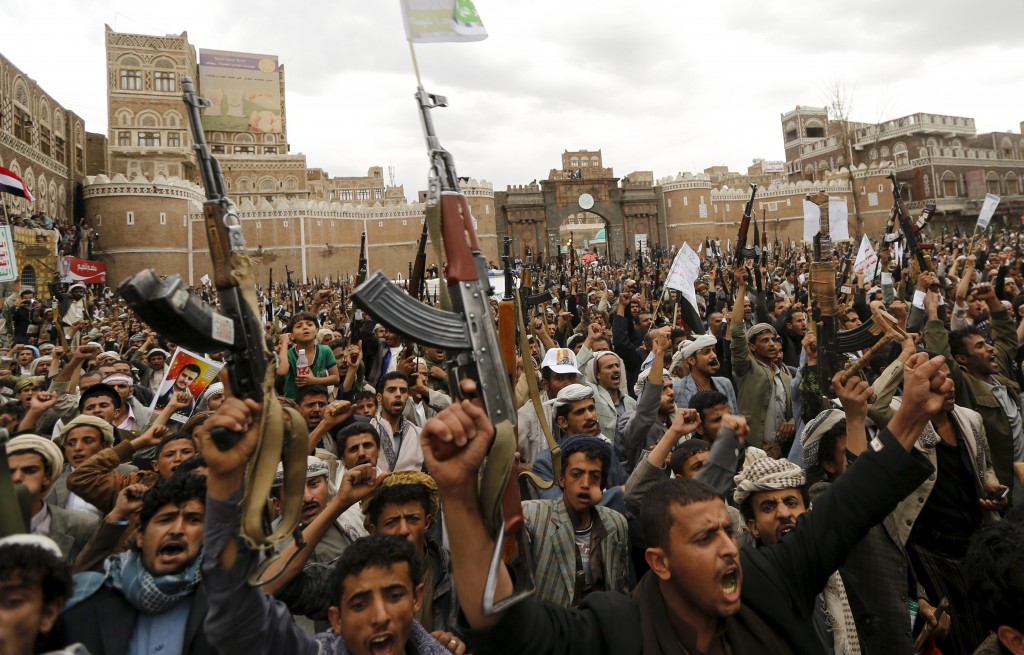London –Arguments have increased between Houthi militias causing an internal division in the delegation, Yemeni diplomatic and military sources said.
Disputes inside the Houthi delegation were clear as some of its leaders welcomed the solution proposed by U.N. Special Envoy Ould Sheikh Ahmed while others rejected it.
A Yemeni diplomat told Asharq Al-Awsat newspaper that Abdul Malik Houthi can no longer control the matters or his leaders, thus preventing Houthi delegates from accepting the solution that includes the formation of a national unity government and security measures stated by U.N. resolution 2216.
According to officials, there are two explanations for these arguments; one is that they are normal because of conflict of interests, two is that they are made up. Sources reported that Houthis tend to change their opinions on certain matters. They also issue statements and later on contradict them.
Head of al-Jazeera Centre for Studies Najib Gallab said that Houthis’ interests are divided between into two: one supporting Saada and the so-called Hezbollah and Iran, while the other associated with the ousted president Saleh.
Gallab stressed that some of those who have supported Houthis at the beginning now realize how dangerous they are. In addition, he confirmed that Houthis’ main reason for negotiations is to ensure their controlling representation in any government.
According to Gallab, Houthis believe that reaching a political solution is a matter of taking control. He added that Houthis are assuming a role larger than they should.
He added that Houthis are aware that the continuation of war will lead to defeat and thus they are looking for solutions that strengthen their presence.
Gallab believes that Houthis and Saleh are in dispute because any political solution will marginalize Saleh, and therefore he wants to weaken the group.
It is worth mentioning that Houthis’ acceptance of resolution 2216 prior to Kuwait talks is the reason why the legitimacy government accepted it as well and endured all the procrastinations of the insurgents.
Press Secretary of Prime Minister Ghamdanal-Sharif told Asharq Al-Awsat newspaper that the division among the insurgents is deliberate. He added, Houthis want to form a unity government yet they want to keep their weapons.
Sharif explained that Houthis won’t deviate from their main cause and they do want partnership and peace.
According to Sharif, Ali Saleh and Houthis disagree on several issues and Ali Saleh and his party are not included in the plan.
Sharif stressed that what’s going on in Kuwait now only confirms that the government will not return to Sanaa unless weapons are handed over.
Confusion is not only limited to the political side in Kuwait, as Houthi militias in the battle field continue to violate the declared cease-fire.
A military official said that confusion among Houthis made it hard to predict what might happen.
Yemeni legitimate forces advanced on several axes as they killed 20 Houthi militants when they were trying to attack Rashah Mountain.
Agence France Presse (AFP) reported that 22 Houthi rebels were killed in fierce battles.
